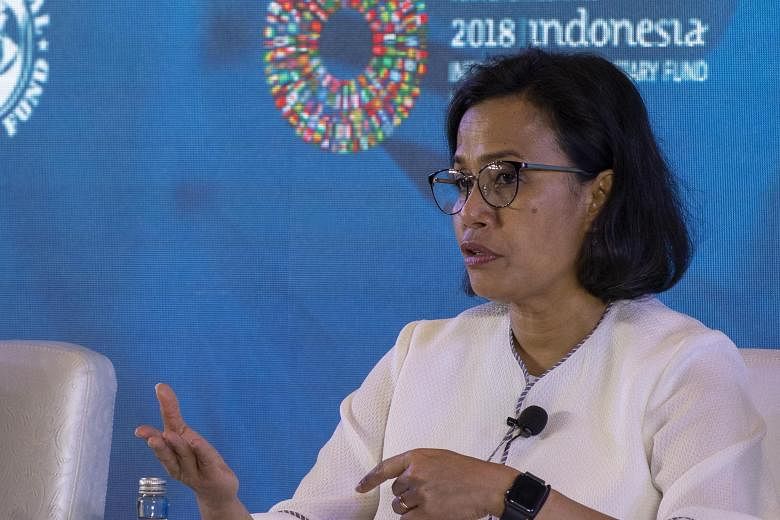BALI - East Asia has achieved tremendous economic achievements in the past few decades, but it still has more room to grow although key challenges are within sight, Indonesia's Finance Minister Sri Mulyani Indrawati said on Wednesday (Oct 10).
In terms of economic expansion, East Asia has outperformed other regions worldwide, thanks to its reliance on economic openness, investment, human capital and effective governance, she said.
East Asia, for instance, grew at a pace that is three times quicker than Latin America and South Asia, as well as five times that of sub-Saharan Africa.
Speaking at a forum on the sidelines of the IMF-World Bank meetings, Dr Sri Mulyani noted that a large number of people in East Asia were lifted out of poverty in a short period of time because of the successful growth story.
But the Indonesian Finance Minister, a former managing director of the World Bank, also listed a number of challenges for the region. These included slower economic expansion in China, the ageing population in some countries and uncertainties caused by the changing global economic environment.
"The clock is ticking and there's not much time left for East Asian countries to avoid the middle-income trap. This region has to step up its transformation," Dr Sri Mulyani said.
She said that for the region to realise its potential it should embrace advanced technology to better integrate with the global economy, maintain its openness and embrace inclusive economic development to create better-shared prosperity.
Malaysian Finance Minister Lim Guan Eng, who was also at the forum, spoke about the need to improve the quality of economic growth to tackle inequality in the region.
He said countries needed to support the livelihood of the population in "immeasurable terms", ones that go beyond figures such as gross domestic product, fiscal deficit and current account surplus. "
"What is the point of having a very good economic number if you do not increase the purchasing power of the rakyat (people)," Mr Lim said.
"If the government focuses on this and let the private sector do (their) best we can avoid the middle-income trap," he added.
Agreeing with Dr Sri Mulyani, Indonesia's former trade minister Mari Elka Pangestu believed that an outward-looking orientation instead of an inward-looking one, marked by import substitution policies, offered an opportunity for the region to further excel.
She added that countries needed to boost trade in services instead of focusing only on trade in goods as "the way forward".


